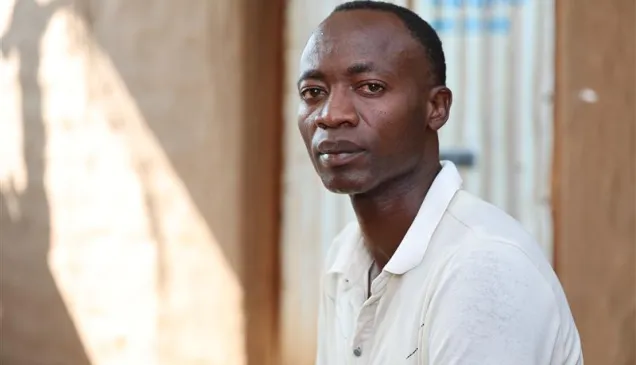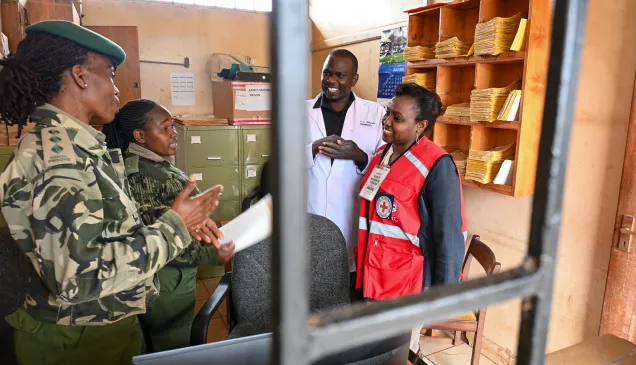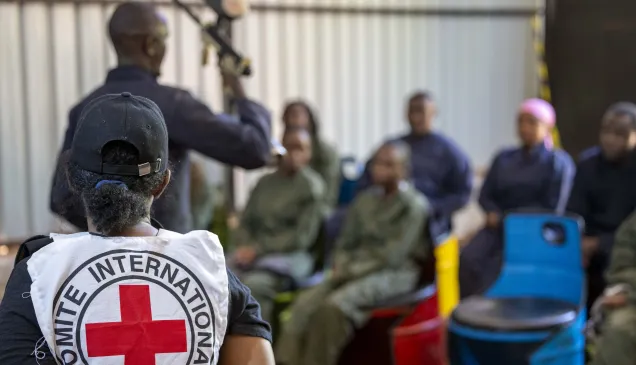Djibouti: A journey of resilience and hope
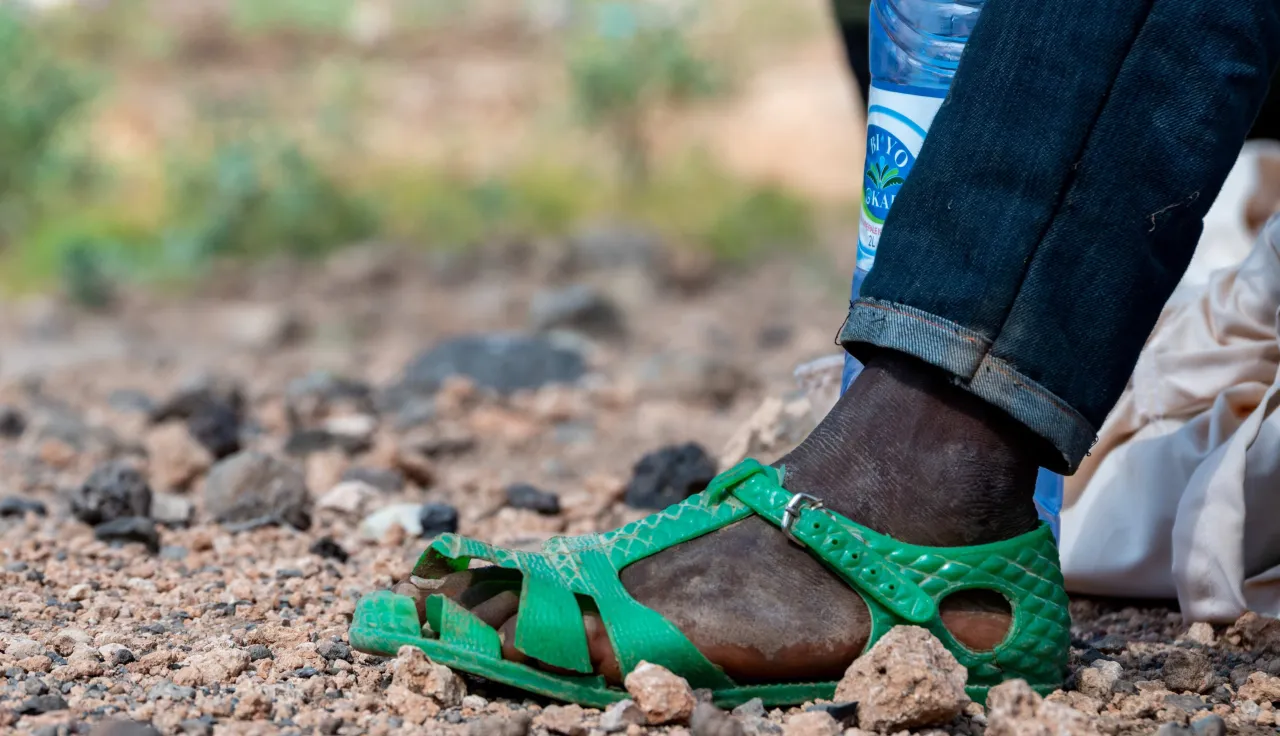
The unforgiving sun beats down on Taga's back as he trudges through the rugged terrain, not knowing where his journey will take him.
He is one of the many refugees, asylum seekers and migrants who have risked everything to escape the conflict and poverty in his home country, hoping for a better life elsewhere. But for Taga, the path has been anything but smooth.
We came with a smuggler. I paid 22,000 birr to the smuggler, but he left me as soon as we got here in Dikhil. I am continuing with the route with no money. I have not reached my destination.
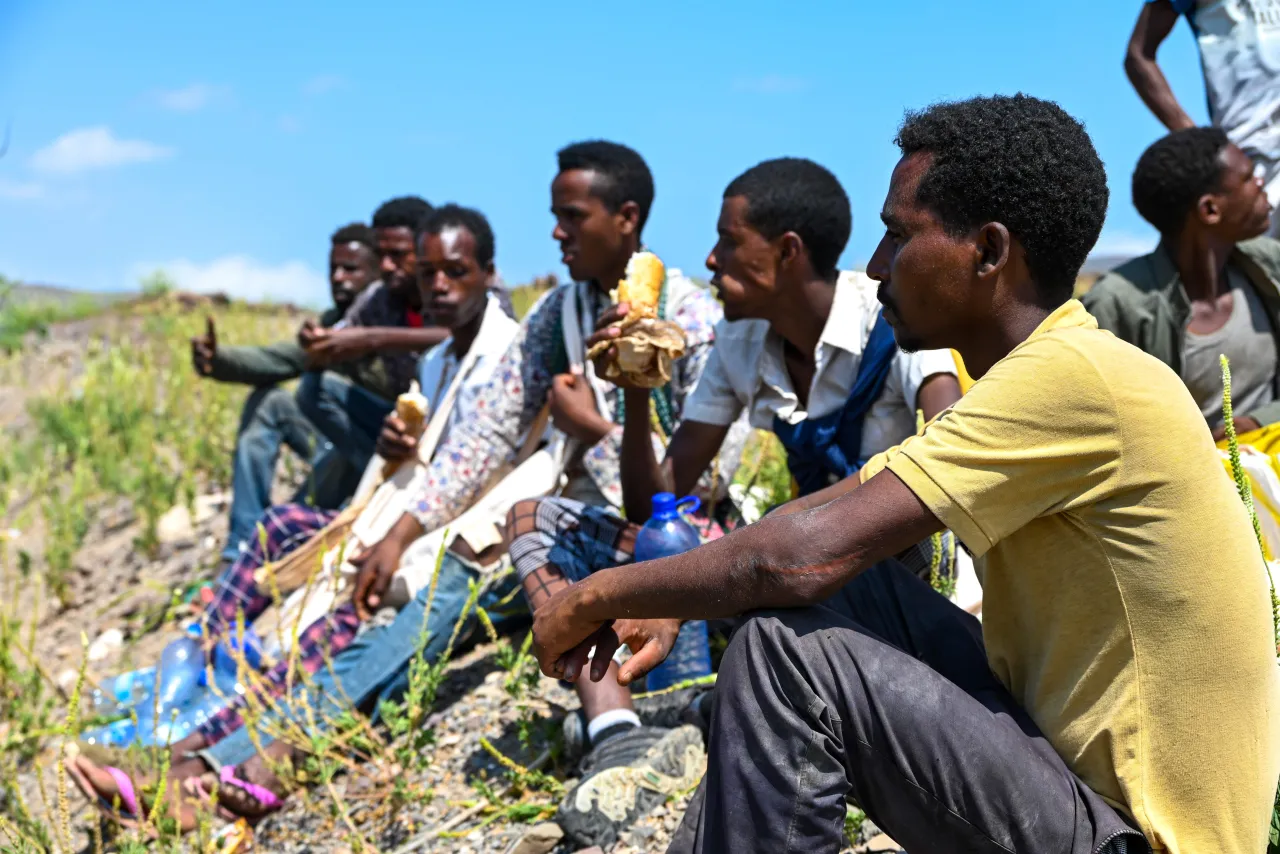
Taga recalls fainting from lack of food and water; here migrants rest and have some dry food rations provided by the DRCS
For weeks, Taga has managed to survive the treacherous journey only by begging for food and water. At the beginning of his journey, Taga had hoped to reach Saudi Arabia, through the sea but now he has nothing left.
After two days of walking, I couldn't handle the hunger and I fainted. The smuggler took the others and left me.
Mohamed Ahmed, another migrant on this perilous journey, is now enroute back to Djibouti after being returned back to his home country for being an illegal migrant. Hailing from Dire Dawa, a town in the arid drylands of eastern Ethiopia a couple of hundred kilometres from the border, he left his country in search of work. However, his journey has been fraught with challenges, including a lack of food, water, and rest.
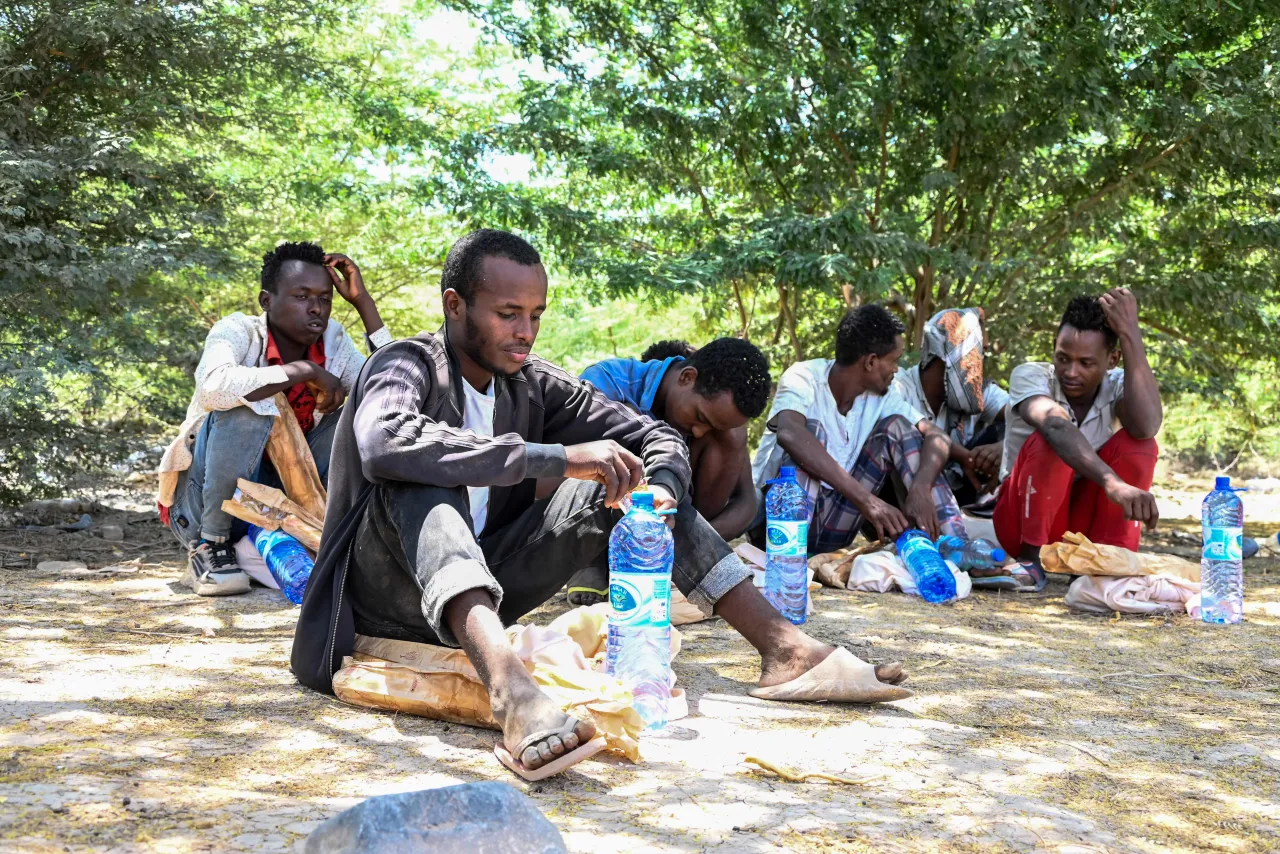
Mohamed and fellow migrants take a break.
His tattered and worn-out shoes tell the tale of the struggles he has had to go through in search for a better life. Despite the obstacles, he remains determined to reach his destination.
I have faced many challenges enroute like lacking water and something to eat, and I am very tired. Among all these, no one has helped us on the way, until when I met you. Mohamed says after meeting the mobile unit of the Djibouti Red Crescent Society (DRCS).
Taga and Mohamed are among the few to receive a dry food basket and two-liter bottle of water from the mobile unit of the DRCS with support by the International Committee of the Red Cross (ICRC) which has been operating twice a week in the southern part of the migration route (Djibouti to Hol-Hol, Ali Sabieh and Dikhil), providing life-saving assistance to migrant. They have assisted over 2,433 migrants since November 2022, preventing deaths from dehydration and starvation, and easing tensions between local communities and migrants. The dry food basket of bread, peanuts, dates, and biscuits, purchased from local suppliers, provides not only sustenance but also a sense of dignity and connection to the local community.
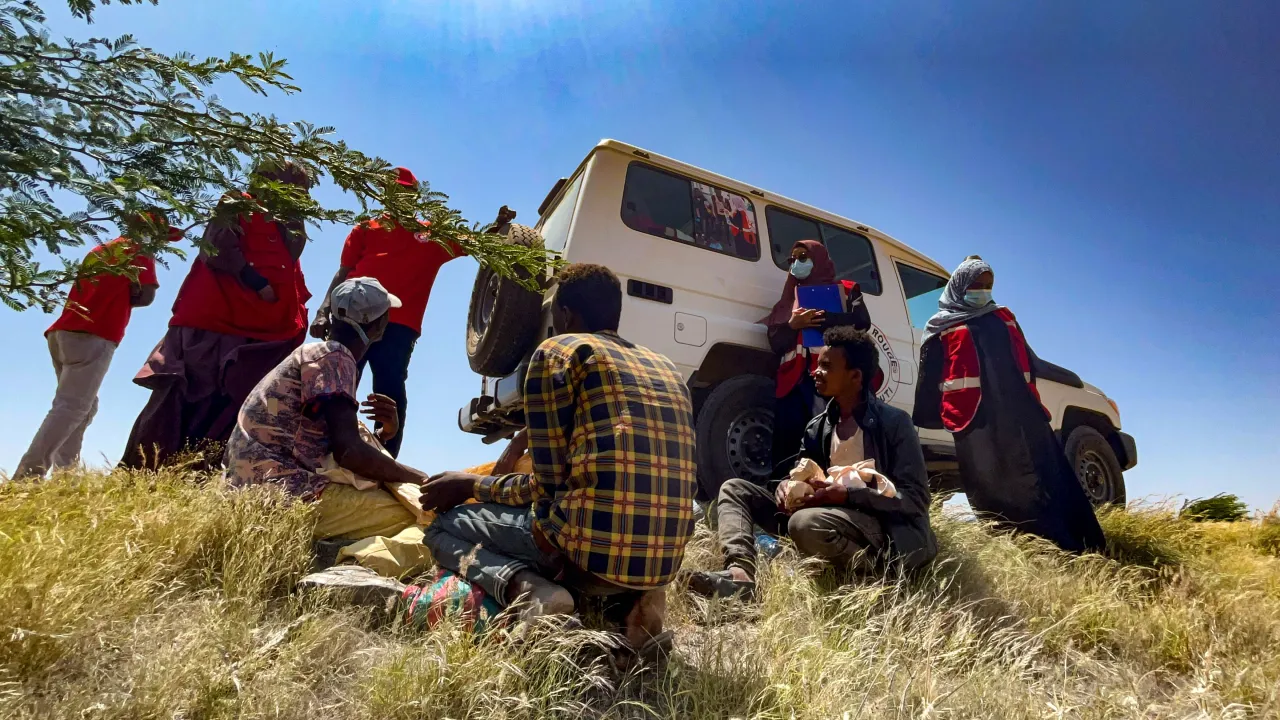
The DRCS team operates twice weekly along the southern part of the migration route offering much needed assistance
In addition, the DRCS and the ICRC have jointly distributed 3098 self-care booklets since April 2021. The booklets provide information on how to navigate the desert (hydrate, be wary of scorpions) and offering contacts for available services in transit offered by the DRCS. From January to March 2023, they have provided 13006 free phone call services to help these individuals connect with their families and ease their pain of separation. They have also distributed 112 hygienic menstrual products to women migrants during the same period.
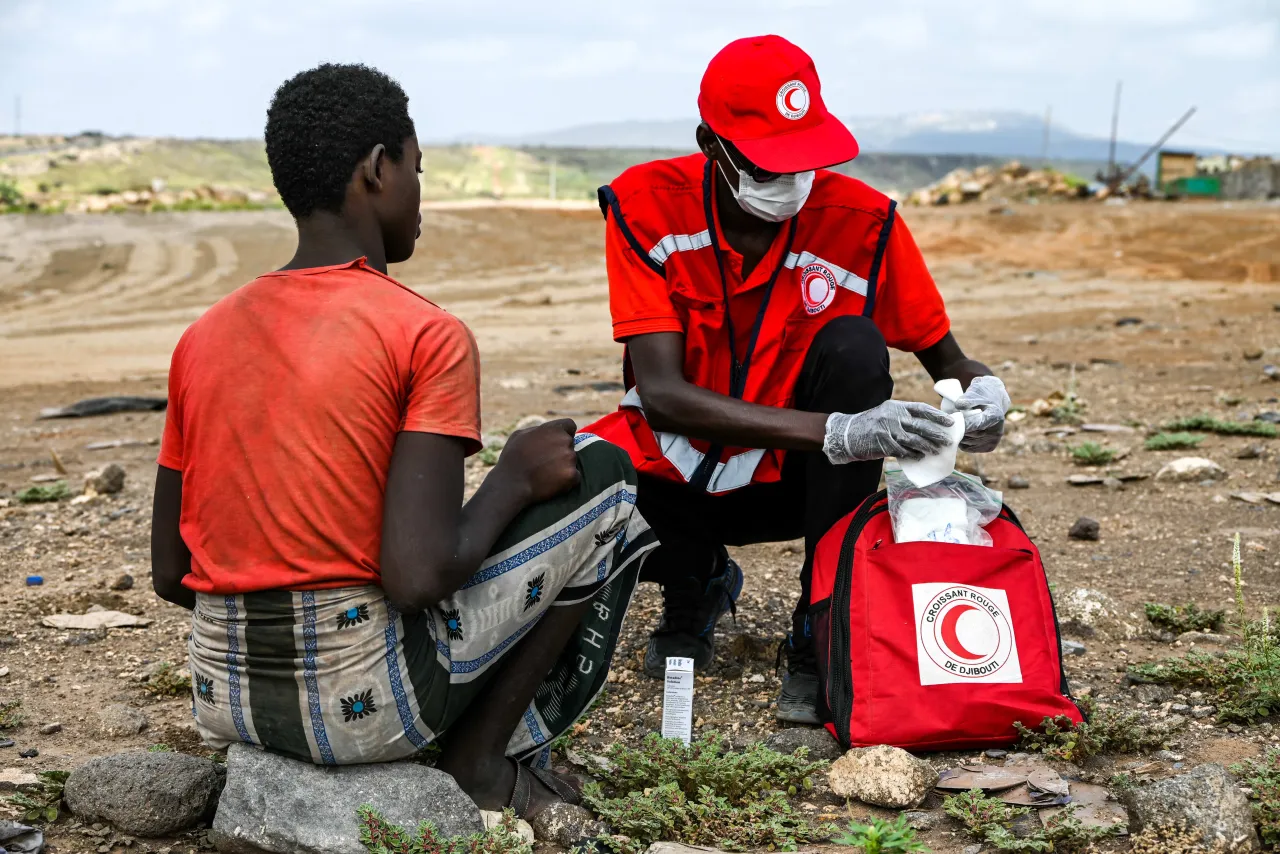
A DRCS volunteer gives first aid for a migrants legs, which mostly suffer due to the harsh conditions and lack of protective footwear
For those who have been forced to leave their homes and seek refuge in unfamiliar lands, the pain of separation from loved ones can be unbearable. Separated by borders and distance, they are often left with little to no means of communication. The DRCS further offers a glimmer of hope by providing free call time minutes, allowing these migrants, asylum seekers, and refugees to reach out to their families and seek comfort in their voices.
The stories of Taga and Mohamed are just two of many heart-wrenching tales of migrants searching for a better future. Many are economic migrants seeking a better future economically while others are escaping conflict mainly in the Horn of Africa. Most are male but there is an increasing number of women and children attempting the journey through the desert, including unaccompanied minors. But the journey is dangerous, with smugglers taking advantage of them, and the weather and lack of resources making things even harder. Some get sick from cholera or snake bites, and some even die from exposure to the elements.
Sadly, hundreds of migrants have died on this route due to dehydration and starvation. Taga and Mohammed both note migrants often leave behind family members or fellow travellers along the route, just like Taga was left Many of those attempting to cross to the Gulf countries are not aware of the challenges they'll face, including long distances and difficult conditions.
Ahmed Mohamed Abdilahi, the DRCS Regional coordinator of Obock Branch, shed more light on the plight of migrants in the area. Speaking about the mass grave site as well as the individual graveyard allocated for the migrants who die, he describes how the society is involved in the process of ensuring these migrants get a dignified last journey. He recalls the 2017 harrowing event where 54 men, women and children hoping to cross over to the gulf were scattered on the shores of Gahere beach.
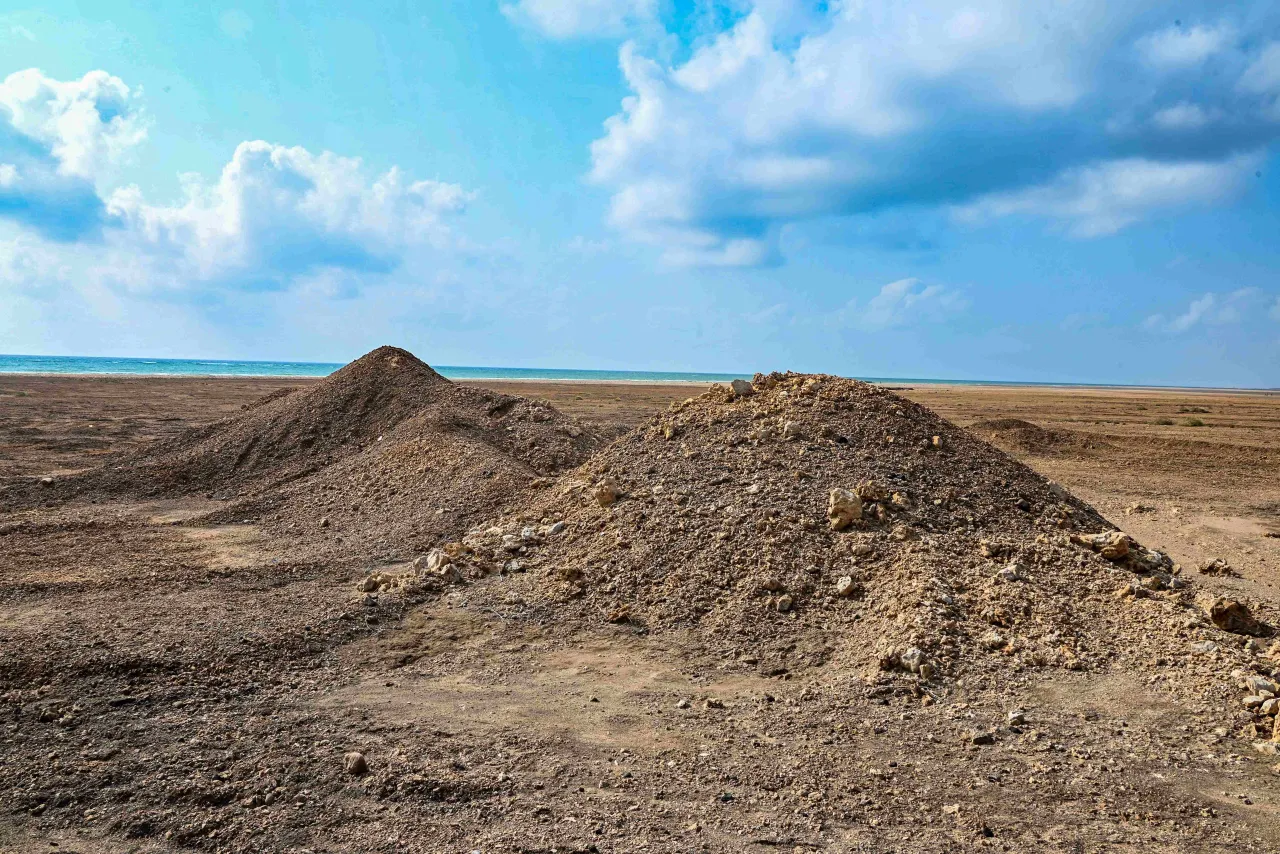
The mass gravesite in Obock region where migrants who die in the desert are buried.
We collected the bodies and put them in body bags. The first day we buried 46 bodies. The second day we were able to retrieve 8 bodies.
The risks faced by migrants attempting to cross the Gulf countries continue to be a significant concern for humanitarian agencies, with deaths often attributed to harsh weather conditions, overcrowded and unseaworthy boats, and even criminal activity such as human smuggling and trafficking.
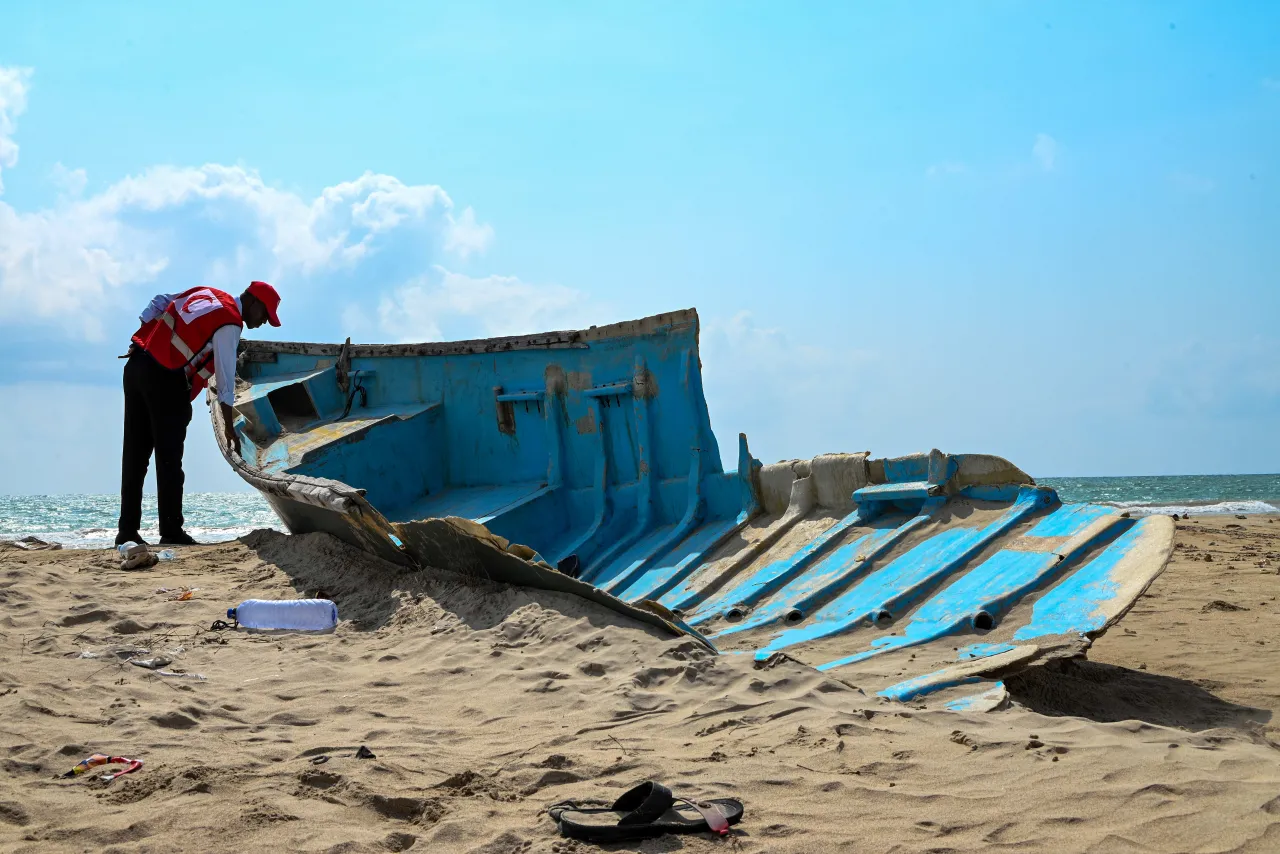
Un-sea worthy boats are often used to ferry migrants from Djibouti to Yemen but end up capsizing from carrying too many people.
The humanitarian needs are overwhelming. The migration crisis in the Horn of Africa is expected to affect over 1.4 million people, with Djibouti at the center of the route. According to IOM migration track, 20,237 migration movement was observed in February 2023 in Djibouti alone. The DRCS and other humanitarian organizations are struggling to meet the demand for assistance, with limited resources and infrastructure. The local communities are also feeling the strain, as the influx of migrants creates tensions and competition for scarce resources.
Taga and Mohamed's stories are just two of the many heartbreaking tales of migrants who have risked their lives for a chance at a better future. As they continue with their journey, they remain hopeful that one day they will be able to fulfill their dreams. Their stories are a reminder that behind every migrant statistic, there is a human being with a story to tell, a life to live, and a hope for a better tomorrow.

